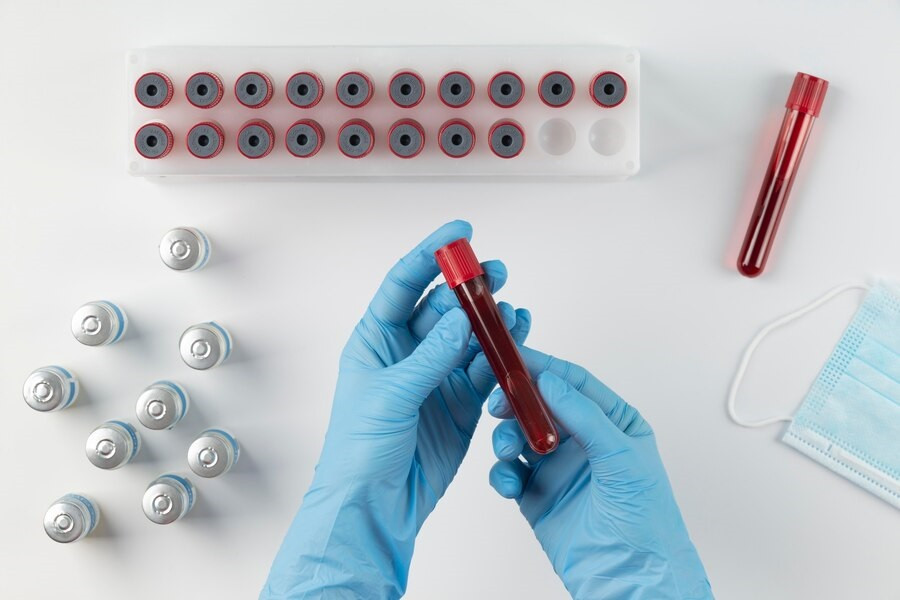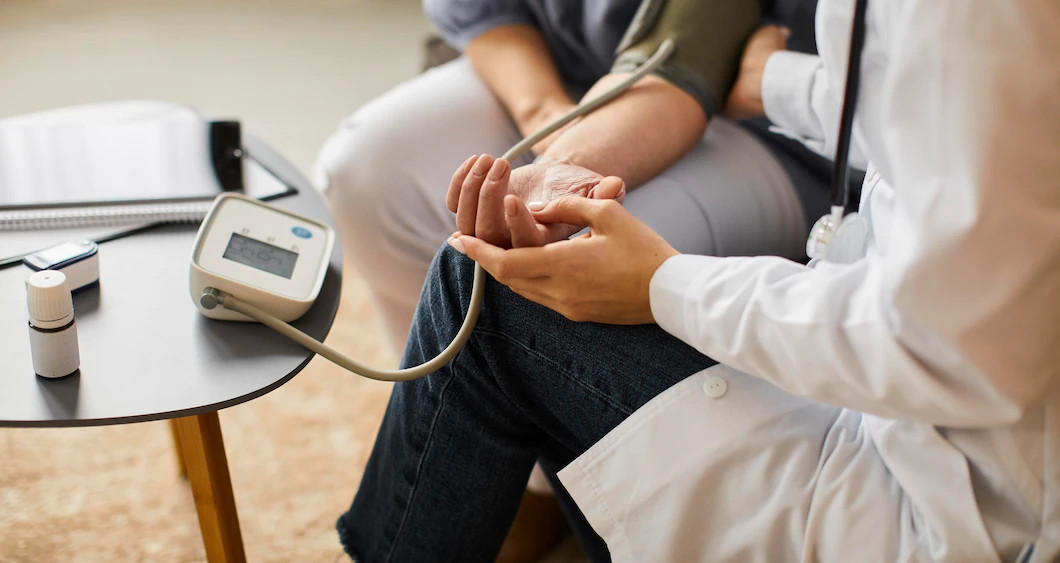Having low hemoglobin (Hb) can cause your body not to get enough oxygen so you easily feel tired and weak. Hemoglobin itself is a complex protein found in red blood cells. Its main function is to bind and transport oxygen throughout the body.
Normal hemoglobin (Hb) levels in the body
One way to find out the level of hemoglobin (Hb) in the body is to undergo a hemoglobin test. Normal hemoglobin levels in each person can vary, including:
- Adult men 13.5-18 g/dL
- Adult women 12-15 g/dL
- Children 11-16 g/dL
- Pregnant women > 10 g/dL
Read more: Thalassemia And Anemia Are Not The Same, This Is The Difference
Signs of low hemoglobin (Hb)
Low hemoglobin (Hb) means the hemoglobin level in the blood is below the normal range. This condition is usually characterized by several symptoms, including:
- Chest pain
- Cold hands and feet
- Dizzy
- Fatigue
- Headache
- Irregular heartbeat
- Skin paler than usual
- Hard to breathe
- The body feels weak
Read more: Food Options That Can Improve Hemoglobin (Hb)
Causes of low hemoglobin (Hb)
Low hemoglobin in the blood can be influenced by several factors, including:
Diet that is too strict
A diet that is too strict can cause you not to get enough iron, folate or vitamin B12 which can affect hemoglobin production in the body. Iron deficiency can inhibit red blood cell production and cause anemia. Folate and vitamin B12 deficiencies can cause megaloblastic anemia, in which red blood cells become abnormally large.
Long-term blood loss
Long-term bleeding from stomach ulcers, uterine fibroids, or heavy menstrual periods can cause low hemoglobin levels.
Pregnancy
During pregnancy, a woman's body experiences significant physical changes including an increase in blood volume so that the need for iron and other nutrients also increases. Anemia in pregnant women often occurs due to deficiencies of iron, vitamin B12, folic acid, and other vitamins.
Iron is necessary for the formation of hemoglobin. Folic acid and vitamin B12 are also needed for normal red blood cell formation.
Genetic conditions
Genetic conditions can cause various types of problems with red blood cells, such as G6PD (Glucose-6-Phosphate Dehydrogenase) deficiency, sickle cell anemia, spherocytosis, and thalassemia. This genetic condition can vary in severity and symptoms. Treatment and care also depend on the genetic condition experienced and the severity of the symptoms.
Cancer
Some types of cancer such as leukemia and lymphoma can affect the production and function of red blood cells, causing anemia. Anemia caused by cancer can have a serious impact on health because it causes fatigue, shortness of breath, pale skin, and a fast heartbeat.
Chronic kidney disease
Chronic kidney disease can impact the production of red blood cells in the body. In healthy kidney conditions, when oxygen in the blood decreases, the kidneys will respond by increasing erythropoietin production. Erythropoietin then stimulates the bone marrow to increase the production of red blood cells which helps increase the blood's capacity to carry oxygen.
However, in chronic kidney disease, there is a decrease in kidney function which affects erythropoietin production. As a result, erythropoietin production can be reduced or not produced at all. This can cause the body to experience anemia.
To treat low Hb, the doctor will first find out what the cause is. Your doctor may recommend iron supplements, iron-rich foods, vitamin B12, and folic acid supplements, help you plan a healthy diet, and recommend blood transfusions if necessary.
Consult your complaints regarding low Hb symptoms with our doctor by downloading the Ai Care application via the App Store or Play Store.
Looking for more information about other diseases? Click here!
- dr. Yuliana Inosensia
Cleveland Clinic (2022). Low Hemoglobin. Available from: https://my.clevelandclinic.org/health/symptoms/17705-low-hemoglobin
Carly Vandergriendt (2023). Everything You Need to Know About Hemoglobin. Available from: https://www.healthline.com/health/what-is-hemoglobin
Mount Sinai. Hemoglobin. Available from: https://www.mountsinai.org/health-library/tests/hemoglobin
Vanessa Caceres (2023). Low Hemoglobin Levels: Everything You Need to Know. Available from: https://www.verywellhealth.com/low-hemoglobin-5217077
Medline Plus (2022). Hemoglobin Test. Available from: https://medlineplus.gov/lab-tests/hemoglobin-test/
Boston Children's Hospital. Megaloblastic Pernicious Anemia. Available from: https://www.childrenshospital.org/conditions/megaloblastic-anemia
CDC (2023). Heavy Menstrual Bleeding. Available from: https://www.cdc.gov/ncbddd/blooddisorders/women/menorrhagia.html
Jen Uscher (2022). Anemia in Pregnancy. Available from: https://www.webmd.com/baby/anemia-in-pregnancy
Kids Health (2018). G6PD Deficiency. Available from: https://kidshealth.org/en/parents/g6pd.html
Mayo Clinic (2023). Sickle cell anemia. Available from: https://www.mayoclinic.org/diseases-conditions/sickle-cell-anemia/symptoms-causes/syc-20355876
Mayo Clinic (2021). Thalassemia. Available from: https://www.mayoclinic.org/diseases-conditions/thalassemia/symptoms-causes/syc-20354995
Cleveland Clinic (2022). Erythropoietin. Available from: https://my.clevelandclinic.org/health/articles/14573-erythropoietin












